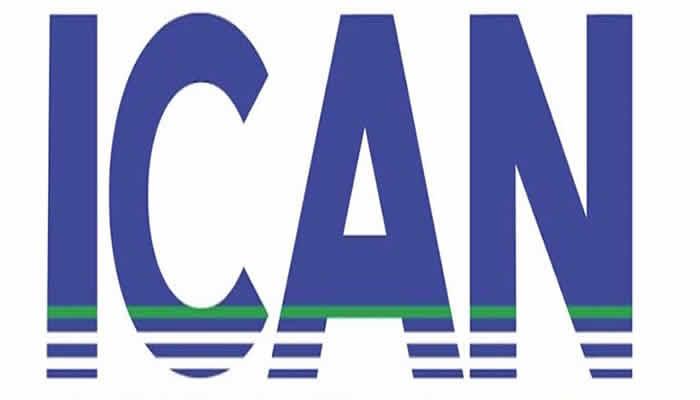The Institute of Chartered Accountants of Nigeria has identified five challenges that it says the Central Bank of Nigeria needs to consider following the apex bank’s naira redesign policy.
The PUNCH reports that on October 26, 2022, the CBN governor, Godwin Emefiele, announced the redesign of the N1000, N500 and N200 notes, for which it got the approval of the President, Major General Muhammadu Buhari (retd.).
The new notes are due for circulation this month (December). ICAN, in a publication by its 58th president, Tijjani Isa, on Monday, noted foreign exchange challenges, inflation and timing of the policy as some of the major issues the CBN might need to face.
ICAN highlighted the challenges the policy might face as follows:
1. Firstly, the CBN asserts that 85% of currency in circulation is outside the banking system. Given this background. ICAN would expect the CBN to perform a thorough root-cause analysis of this statistic as it appears inconsistent with recent initiatives to promote a cashless economy.
Such initiatives include the eNaira, which was launched In October 2021. In addition, there are numerous payment solutions provided by fintech companies. It would be proper for the CBN to understand why such schemes have not achieved the desired impact and link the underlying issues therein to the currency redesign policy. That way, it would be possible to monitor and evaluate the impact of the policy on the volume of currency in circulation.
READ ALSO: Naira Redesign: Buhari, Emefiele Played Nigerians, Only Changed Dye Of Currency – Sowore
Coincidentally, the CBN issued the Exposure Draft of the Guidelines for Contactless Payments in Nigeria. On October 17, 2022. ICA, and indeed all stakeholders would require the assurances of the CBN that the proposed guidelines on contactless payments would indeed make significant complementary impact to the cashless economy drive.
2) Secondly, the currency redesign policy would potentially negatively affect the exchange rate of the naira. The official exchange rate remained relatively stable at a range of N437.66/$1 to N443.26/$1 between October 26 and November 22, 2022. This seeming appearance of stability does not provide much cheer. due to the significant illiquidity in the official forex channels.
However, and unsurprisingly, the impact on the parallel market has been more profound. The naira has depreciated by approximately 10.8% from N740/$1 on October 26, 2022 to about N840/$1 on November 1, 2022 and N880/$1 on November 14, 2022.
ICAN noted that two issues were plausibly responsible for the above: (a) Businesses and individuals are reported to be searching unsuccessfully to access the US dollar for genuine needs, including the importation of critical raw materials and machinery. Even where available, the high exchange rate is already leading to increased cost of production, and hence increase in prices of goods and services.
(b) It is likely that perhaps, holders of the currency notes generated from illicit business and stored outside of the banking system are in a race to convert them to foreign currency in the parallel market. These will still avoid the banking system, but also put further pressure on the exchange rate.
3. Furthermore, year-on-year inflation rate has been on a steady rise since January 2022 to date. The all-item inflation rate rose from 15.6% in January 2022 to 20.77% as at September 2022. The food inflation rate similarly rose from 17.13% to 23.34% within the same period. ICAN is concerned about further rise in inflation rate and the cost of living.
ICAN conference: Obi, Sowore present, Atiku, Tinubu absent
4. We note that the CBN is yet to disclose some pertinent details of the currency redesign policy, such as the cost of designing and printing the new currency notes. We acknowledge however that the CBN governor has subsequently confirmed that the printing of the new currency notes will be done locally. In addition, we welcome the early launch of the redesigned currency notes by President Buhari on November 23, 2022.
5. Another area where Nigerians are apprehensive is the timing of the implementation of the policy. The existing currency notes cease to be legal tender by the end of January 2023, while the general election is scheduled to hold in February 2023. Considering the economics of our recent electoral cycles, money in circulation typically increases during the general election. There is some level of uncertainty, therefore, as to what impact, if any, the currency policy will have on liquidity during the general election.
Recommendations
ICAN recommended strong monitoring of the implementation through the deposit money banks, in order to moderate the likely impacts on inflation and exchange rates.
It also recommended closer collaboration between the CBN, the fiscal authorities (i.e the Federal Ministry of Finance, Budget and National Planning) as well as law enforcement agencies to preserve the integrity of our financial system.
It added, “Any individual and organisation found to be contravening our monetary and fiscal regulations should be prosecuted to the full extent of the law.
READ ALSO: Naira Redesign: CBN Issues New Cash Withdrawal Policy
“The CBN should pursue with renewed vigour, extant policies aimed at improving our foreign currency reserves.
“The CBN should be transparent in enlightening the public on the cost of the naira redesign implementation policy.
“The CBN should pursue vigorously the drive for cashless economy.”
ICAN added that the CBN should extend the window for withdrawal of the old currency notes, citing the yuletide season as a reason for such.
PUNCH
